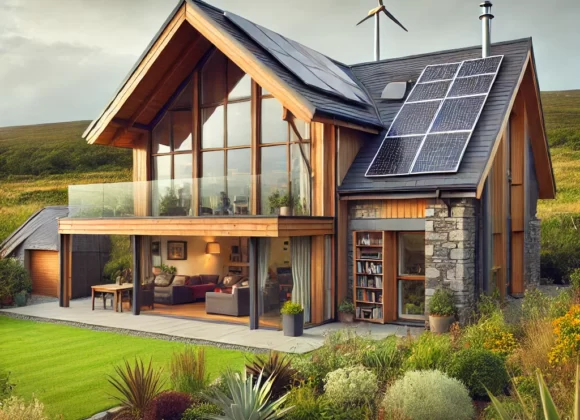What Is The Future Role Of Green Energy In Our Society?
Last year’s winter has very strong wind, in fact they were record-breaking gales which battered coasts, trees and buildings which resulted in record highs of wind-generated electricity.
In fact, on the 21st of December wind produced an impressive 17% of our nation’s total electricity demand.
We have learned to harness the natural energy of the sun and wind to provide power for our homes and businesses.
In terms of domestic energy, solar power has boomed over the long, sunny summer, with a surge of people installing PV on their roofs (Ashden, 2014).
Due to the falling costs of technologies, concern regarding increasing fuel bills combined with design improvements and government incentives (such as RHI & FiT) are all supporting a sector which brims with potential to reduce business and domestic carbon emissions and footprints.
Over the next 20 years the UK’s energy consumption and mix will dramatically change.
The energy which we produce underpins everything we do.
“Without energy there would be no artificial light, no long-distance communication, no mass transport or large-scale manufacturing” (BBC, 2014).
However, how much energy do we actually consume and more important where does it come from?
The UK consumes less energy than in 1970, and this despite an extra 6.5 million people living in the country.
As a country we are now becoming more energy efficient, both in terms of producing energy and consuming it.
According to the UK Government’s construction data provider it is estimated that by 2025 roughly 50% of all UK infrastructure spending will be on renewable energy. By this point £81 billion in new spending is planned.
This signifies a distinct change in the level of priority given to generating green energy.
This is great news for the sector as secure and low-carbon technologies must increase as a percentage of our total energy mix if we are going to lower our carbon footprint.
These figures suggest that clean energy is becoming an increasing priority, it’s to be hoped that ultimately, low carbon forms of energy generation become far more normalised, and less polarising.
In conclusion, this data also suggests that green energy incentives are incentivising businesses owners by boosting industry interest in building new green energy capacity.



